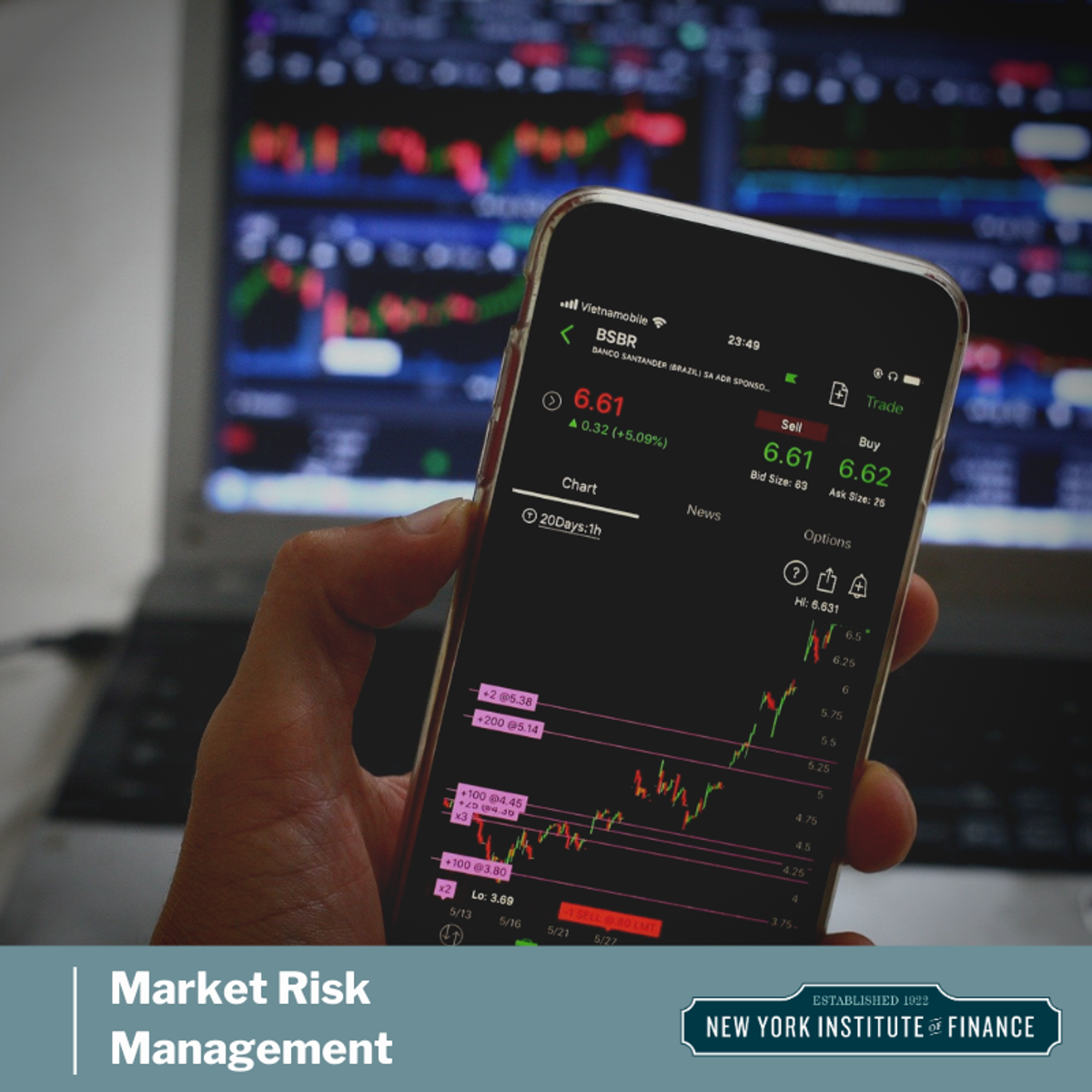Sales Trader
Sales Trader: A Career Guide
A Sales Trader operates at the dynamic intersection of sales and financial market execution. Their primary role involves acting as an intermediary between institutional clients (like hedge funds, mutual funds, or pension funds) and the financial markets, facilitating the buying and selling of securities such as stocks, bonds, or derivatives on behalf of these clients.
Unlike proprietary traders who trade using the firm's own capital, Sales Traders focus on servicing client orders and managing those relationships. This role demands a unique blend of market knowledge, quick thinking, strong interpersonal skills, and the ability to perform under pressure. It's a fast-paced environment where decisions made in seconds can have significant financial implications for clients and the firm.
For those drawn to the energy of trading floors and the challenge of navigating complex financial markets while building client trust, a career as a Sales Trader can be incredibly rewarding. It offers a front-row seat to market movements and the opportunity to develop deep expertise in specific asset classes or market sectors.
What Does a Sales Trader Do?
Client Relationships and Order Execution
The core function of a Sales Trader revolves around managing relationships with institutional clients. This involves understanding their investment strategies, providing market color and insights, and ultimately, executing their trading orders efficiently and effectively. They act as the client's eyes and ears in the market.
When a client wishes to buy or sell a security, they contact their Sales Trader. The trader must then navigate the market to find the best possible price and execute the trade. This requires expertise in various trading platforms and an understanding of market microstructure – the underlying mechanics of how exchanges and trading systems operate.
Building trust and rapport is paramount. Sales Traders must communicate clearly, provide timely updates, and demonstrate that they are consistently working in the client's best interest. Strong client relationship management skills are as crucial as trading acumen.
Market Analysis and Real-Time Decisions
Sales Traders constantly monitor market news, economic data releases, and price movements across various asset classes. They need to quickly synthesize this information to provide relevant insights to clients and make informed decisions about how and when to execute trades.
This involves interpreting charts, understanding technical indicators, and being aware of macroeconomic trends that could impact market sentiment. The ability to react swiftly to changing market conditions, often amidst volatility, is a critical skill.
While they don't typically develop long-term investment strategies like portfolio managers, Sales Traders provide short-term market intelligence and execution strategies. They might advise clients on the best way to execute a large order to minimize market impact or highlight short-term trading opportunities.
Risk Management and Regulatory Compliance
Executing large trades inherently involves risk – both market risk (prices moving adversely) and operational risk (errors in execution). Sales Traders must manage these risks diligently, ensuring trades are placed correctly and align with the firm's risk limits.
The financial industry is heavily regulated. Sales Traders must have a thorough understanding of and strictly adhere to relevant regulations, such as those concerning best execution, market manipulation, and insider trading. Compliance is not optional; it's integral to the role.
This includes maintaining accurate records of client communications and trades, understanding disclosure requirements, and staying updated on evolving regulatory landscapes. Firms provide ongoing training, but personal diligence is essential.
Essential Skills and Qualifications
Key Competencies
Success as a Sales Trader hinges on a combination of quantitative aptitude, communication prowess, and psychological resilience. Strong numerical skills are needed to quickly calculate prices, sizes, and potential risks. Excellent verbal communication is vital for interacting with clients and conveying complex information clearly.
Decision-making under pressure is a daily requirement. Markets move fast, and hesitation can be costly. The ability to remain calm, think logically, and act decisively during volatile periods is crucial. Stress management techniques are highly valuable.
Furthermore, sales and negotiation skills are important for building the client book and ensuring clients receive excellent service. A detail-oriented approach is also necessary to avoid costly execution errors.
Educational Background
Most Sales Traders hold at least a bachelor's degree. Common fields of study include finance, economics, business administration, mathematics, or other quantitative disciplines. A strong academic record from a reputable university is often preferred by top firms.
Coursework in financial markets, investment analysis, derivatives, statistics, and corporate finance provides a solid foundation. Some individuals pursue advanced degrees like an MBA or a Master's in Finance, which can enhance competitiveness, especially for roles requiring deeper analytical skills.
However, raw intelligence, drive, and demonstrable interest in the markets can sometimes open doors even for those with less traditional academic backgrounds, particularly if combined with relevant internships or experiences.
Licenses and Certifications
In most jurisdictions, Sales Traders must pass specific regulatory exams to be licensed to trade securities. In the United States, the most common requirement is the Securities Industry Essentials (SIE) exam, followed by the Series 7 and Series 63 licenses, administered by FINRA (Financial Industry Regulatory Authority).
Other licenses might be required depending on the specific products traded (e.g., Series 3 for commodities futures, Series 57 for securities traders). Firms typically sponsor new hires for these exams and provide study materials and time to prepare.
While not always mandatory for entry-level roles, pursuing voluntary professional certifications like the Chartered Financial Analyst (CFA) designation can significantly enhance career prospects. The CFA program provides rigorous training in investment analysis, portfolio management, and ethics, signaling a high level of commitment and expertise.
Consider exploring resources on Finance & Economics to build foundational knowledge for these demanding qualifications.
Building Your Foundation: Education Pathways
University Degrees and Coursework
A strong undergraduate degree forms the bedrock for a career in sales trading. Programs in Finance, Economics, or Business provide direct relevant knowledge about market mechanics, valuation, and financial instruments.
Key courses to focus on include Financial Markets and Institutions, Investment Principles, Derivative Securities, Microeconomics and Macroeconomics, and Quantitative Methods or Econometrics. These courses develop the analytical framework needed for the role.
Degrees in Mathematics, Physics, or Engineering are also highly regarded, especially by firms employing more quantitative trading strategies. These disciplines demonstrate strong analytical and problem-solving abilities, which are readily transferable to financial markets.
Internships and Networking
Practical experience is invaluable. Internships at investment banks, brokerage firms, or trading houses provide firsthand exposure to the trading floor environment and allow students to apply academic knowledge.
Internships are highly competitive, so starting the application process early is crucial. Even related experiences in finance, such as wealth management or corporate banking internships, can be beneficial.
Networking is also key. Attending university career fairs, joining finance clubs, and connecting with industry professionals through platforms like LinkedIn or alumni events can provide insights and potential leads for internships or full-time positions. Building relationships early can make a significant difference.
Leveraging Online Learning and Self-Study
Can Online Courses Build a Foundation?
Online courses offer a flexible and accessible way to build foundational knowledge for a sales trading career, especially for career changers or those wanting to supplement formal education. Platforms like OpenCourser aggregate thousands of courses covering finance fundamentals.
While an online course alone might not replace a university degree or required licenses in the eyes of employers, it demonstrates initiative and allows learners to acquire specific knowledge efficiently. Topics like market structure, specific asset classes (equities, fixed income, FX), and financial modeling are well-suited for online learning.
These courses can help you understand the jargon, the key players, and the mechanics of the markets before you even step into an interview. They are excellent tools for self-assessment to gauge your interest and aptitude for the field.
These courses offer introductions to capital markets and financial analysis, crucial areas for aspiring Sales Traders.
Key Topics for Self-Study
Prioritize topics directly relevant to the day-to-day job. Understanding financial markets – how different exchanges work, order types, and liquidity – is fundamental. Learning about specific asset classes you're interested in (e.g., equities, bonds, FX, commodities) is also vital.
Familiarity with common trading platforms and software is advantageous, although specific platforms vary by firm. Basic proficiency in tools like Excel for data analysis is often expected. Understanding concepts like technical analysis and risk management is also beneficial.
Focusing on practical application, such as understanding how news events impact prices or how different order execution strategies work, will be more valuable than purely theoretical knowledge.
These courses delve deeper into market understanding and risk management concepts.
Simulated Trading and Portfolio Building
Many online brokers and financial education platforms offer simulated trading accounts (paper trading). These allow you to practice executing trades with virtual money in a real-time market environment without financial risk.
Using a paper trading account is an excellent way to familiarize yourself with order types, test simple strategies, and experience the emotional aspect of seeing positions gain or lose value. It helps bridge the gap between theory and practice.
While success in paper trading doesn't guarantee real-world success, documenting your simulated trading activity and the rationale behind your decisions can be a valuable talking point in interviews, demonstrating your engagement and understanding of market dynamics.
Career Progression and Future Opportunities
Starting Your Journey
Most individuals enter sales trading through junior roles, often titled Trading Assistant or Junior Sales Trader. These positions typically involve supporting senior traders, handling administrative tasks, monitoring markets, and gradually learning the execution process.
These entry-level roles provide essential hands-on experience and exposure to the trading floor culture. It's a period of intense learning, observation, and proving one's capabilities and work ethic. Performance in these roles is critical for advancement.
Progression often involves taking on small client accounts under supervision, passing licensing exams, and demonstrating proficiency in market knowledge and execution before being promoted to a full Sales Trader role with independent client responsibility.
Mid-Career Development
As Sales Traders gain experience, they typically develop deeper expertise in specific asset classes (e.g., equity derivatives, high-yield bonds) or sectors (e.g., technology, healthcare). Specialization allows them to provide more valuable insights to relevant clients.
Some may move towards managing larger, more complex client relationships or trading more sophisticated products. Others might transition into leadership roles, overseeing a team of junior traders or managing a specific trading desk.
Mid-career professionals often focus on expanding their client network, enhancing their market knowledge through continuous learning, and potentially pursuing advanced certifications like the CFA to bolster their credentials.
Long-Term Career Trajectories
Experienced Sales Traders have several potential long-term paths. Many continue in senior sales trading roles, leveraging their extensive client relationships and market expertise. Some may move to the "buy-side," joining hedge funds or asset management firms as traders or portfolio managers, applying their execution skills from a different perspective.
Other potential avenues include roles in risk management, compliance, or even financial technology firms that develop trading software and platforms. Some entrepreneurial individuals might eventually establish their own trading firms or consultancies.
The skills developed in sales trading – market knowledge, client management, risk assessment, and quick decision-making – are highly transferable within the broader financial services industry.
Related Career Paths
The skills honed as a Sales Trader open doors to various other roles within finance. Understanding these adjacent careers can help you map your long-term goals or identify alternative paths if sales trading isn't the perfect fit.
Many skills overlap with roles like general Traders, who might focus more on proprietary trading or market making. Financial Analysts evaluate investment opportunities, requiring strong analytical skills often developed by observing market reactions as a trader.
Other related fields include Investment Banking, which involves advisory and capital raising, and Portfolio Management, focused on constructing and managing investment portfolios. Risk Analysts assess and mitigate financial risks, a key component of trading.
Industry Trends Shaping the Role
Automation and Algorithmic Trading
The rise of algorithmic trading and increased automation is significantly impacting trading floors. Many simpler, standardized trades are now executed electronically with minimal human intervention, increasing efficiency but potentially reducing the need for traders focused purely on basic execution.
However, automation also creates opportunities. Sales Traders who understand these systems and can work effectively alongside them are highly valued. The focus shifts towards managing complex orders, providing high-touch service, offering sophisticated market insights, and handling trades in less liquid or more volatile markets where algorithms may struggle.
Sales Traders increasingly need to be comfortable with technology and data analysis to leverage automated tools and provide value beyond simple execution.
Regulatory Landscape
Since the 2008 financial crisis, regulations governing financial markets have tightened significantly worldwide (e.g., MiFID II in Europe, Dodd-Frank in the US). These rules impact everything from capital requirements for firms to reporting standards and best execution obligations for traders.
Sales Traders must stay constantly informed about evolving compliance requirements. This demands ongoing training and meticulous attention to detail in documenting client interactions and trade execution processes. Regulatory scrutiny adds another layer of pressure to the role.
Understanding the regulatory environment isn't just about compliance; it also shapes market structure and trading behaviour, making it essential knowledge for effective trading.
Global Markets and ESG
Financial markets are increasingly interconnected globally. Sales Traders often need to be aware of developments in international markets, as events in one region can quickly impact others. Some roles may specialize in cross-border trading or specific international markets.
There's also a growing focus on Environmental, Social, and Governance (ESG) factors in investing. Clients are increasingly interested in ESG considerations, and Sales Traders may need to understand how these factors influence investment decisions and market trends. According to a Bloomberg Intelligence report, ESG assets are projected to grow substantially, influencing market dynamics.
Adapting to these global shifts and evolving investor preferences is crucial for long-term success in the field.
Challenges and Ethical Considerations
Pressure, Pace, and Burnout
Sales trading operates in a high-stakes, fast-paced environment. The constant need to monitor markets, make quick decisions, and meet client demands can lead to significant stress. Long hours are often the norm, particularly during periods of high market activity.
The pressure to perform consistently and avoid costly errors can be intense. Managing this stress effectively is critical for longevity in the career. Burnout is a real risk if individuals do not find sustainable ways to cope with the demands of the job.
Developing resilience, maintaining a healthy work-life balance (as much as possible), and seeking support when needed are important strategies for navigating these challenges.
Conflicts of Interest
Sales Traders act as agents for their clients but are employed by firms that also have their own financial interests. This can sometimes create potential conflicts of interest, for example, regarding how orders are routed or what market information is shared.
Navigating these potential conflicts ethically is paramount. Regulations like "best execution" require traders to prioritize the client's interests when executing orders. Transparency with clients and strict adherence to firm policies and regulations are essential.
Maintaining ethical integrity builds long-term trust with clients and protects both the individual's and the firm's reputation.
Compliance and Insider Information
Sales Traders are privy to sensitive market information, including large client orders that could potentially move prices. Strict rules govern the handling of such non-public information to prevent insider trading.
Adherence to compliance procedures is non-negotiable. This includes rules around communication (e.g., recorded phone lines), information barriers ("Chinese walls") between different departments of a firm, and personal trading policies.
Violations can result in severe consequences, including termination, hefty fines, regulatory sanctions, and even criminal charges. A strong ethical compass and thorough understanding of compliance rules are fundamental requirements.
Frequently Asked Questions
Is a Sales Trader role suitable for remote work?
Traditionally, sales trading required a physical presence on a trading floor for real-time communication and access to specialized systems. While technology has enabled more remote capabilities, especially post-pandemic, many firms still prefer or require traders to be in the office, at least partially.
The need for secure, high-speed connectivity, instant collaboration with colleagues, and regulatory oversight often makes fully remote sales trading challenging. Hybrid models are becoming more common, but expectations vary significantly by firm.
Entry-level roles, in particular, often benefit immensely from the learning environment and mentorship available through in-person interaction on a trading desk.
How competitive is entry into this field?
Entry into sales trading roles at top-tier investment banks and brokerage firms is highly competitive. These institutions attract a large pool of applicants, often seeking candidates with strong academic backgrounds from target universities, relevant internships, and demonstrable quantitative and communication skills.
Networking, a polished resume highlighting relevant skills and experiences, and thorough preparation for technical and behavioral interviews are essential. Persistence and a clear passion for the financial markets are crucial differentiators.
Opportunities may also exist at smaller or regional firms, which might offer different entry points into the industry.
What certifications are mandatory vs. optional?
Mandatory certifications are typically the regulatory licenses required to legally trade securities in a specific jurisdiction. In the U.S., this usually includes the SIE, Series 7, and Series 63. The specific requirements depend on the country and the products being traded.
Optional certifications, like the Chartered Financial Analyst (CFA) or Chartered Market Technician (CMT) designations, are not legally required but can significantly enhance credibility and career prospects. They demonstrate a deeper level of expertise and commitment to the profession.
Firms usually support employees in obtaining mandatory licenses soon after hiring. Pursuing optional certifications is typically a personal decision undertaken for professional development.
Can skills transfer to asset management or investment banking roles?
Yes, the skills developed as a Sales Trader are highly transferable. Understanding market dynamics, execution strategies, client relationship management, and risk assessment are valuable in many other finance roles.
Moving to the buy-side (asset management, hedge funds) as a trader or assistant portfolio manager is a common path. The execution expertise is directly applicable. Skills in market analysis and client interaction can also be relevant for certain investment banking roles, particularly those related to capital markets.
Networking within the firm and industry, potentially acquiring additional qualifications (like the CFA), and highlighting transferable skills can facilitate such transitions.
What are typical salary ranges?
Compensation for Sales Traders typically consists of a base salary plus a significant performance-based bonus. Entry-level salaries vary by location and firm size but are generally competitive within the financial services industry.
As traders gain experience and build a successful track record (measured by client business generated and execution quality), their total compensation can increase substantially. Bonuses can often exceed base salaries for high performers.
Reliable, up-to-date salary data can often be found through industry surveys and financial career websites. For context, the U.S. Bureau of Labor Statistics provides general data for Securities, Commodities, and Financial Services Sales Agents, although top-tier firm compensation often exceeds these averages.
What is the impact of AI on future job prospects?
Artificial intelligence (AI) and automation are undoubtedly changing the landscape, handling more routine execution tasks. However, AI is unlikely to completely replace Sales Traders in the near future, especially for complex trades, relationship management, and navigating nuanced market conditions.
The role is evolving. Future Sales Traders will likely need to work alongside AI tools, leveraging them for data analysis, pattern recognition, and optimizing execution. The emphasis will increasingly be on high-touch client service, providing sophisticated market insights, and managing relationships – areas where human skills remain crucial.
Adaptability and a willingness to embrace technological change will be key. Those who can combine strong interpersonal skills with an understanding of data and trading technology will be best positioned for success.
Concluding Thoughts
Embarking on a career as a Sales Trader is a challenging yet potentially exhilarating path within the financial services industry. It demands a unique mix of analytical rigor, rapid decision-making, strong communication skills, and the ability to thrive under pressure. The role offers direct exposure to the pulse of the financial markets and the opportunity to build lasting client relationships.
While the field is competitive and evolving due to technology and regulation, opportunities remain for talented individuals who are passionate about markets and dedicated to mastering the craft. Whether you pursue formal education, leverage online learning resources like those found on OpenCourser Business, or gain experience through internships, building a solid foundation is key. Remember that resilience, continuous learning, and ethical conduct are vital for navigating the complexities and achieving long-term success in this dynamic career.








